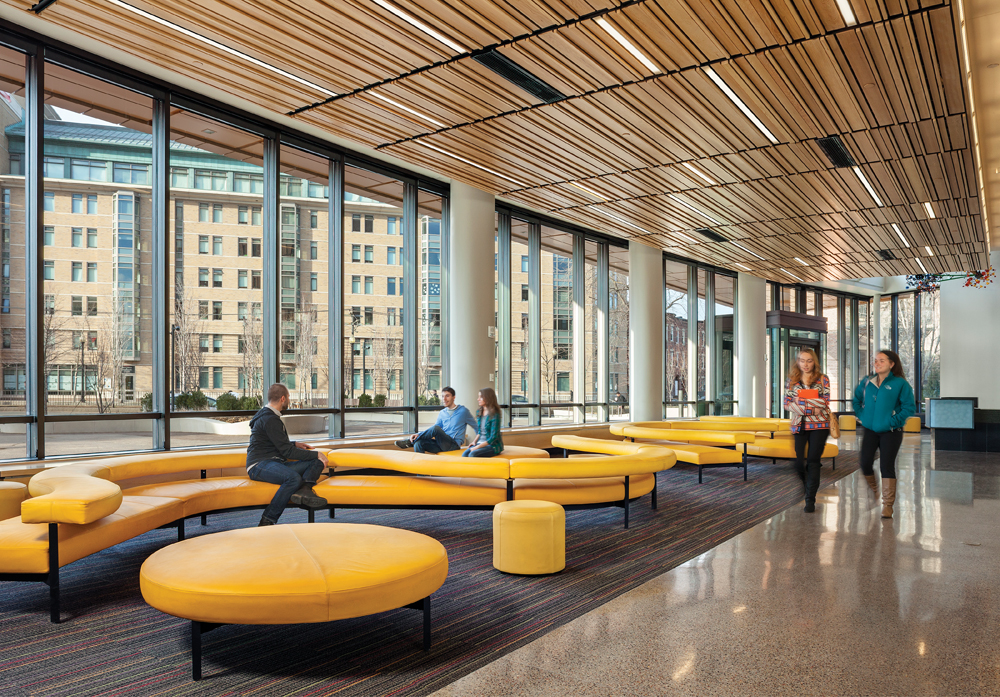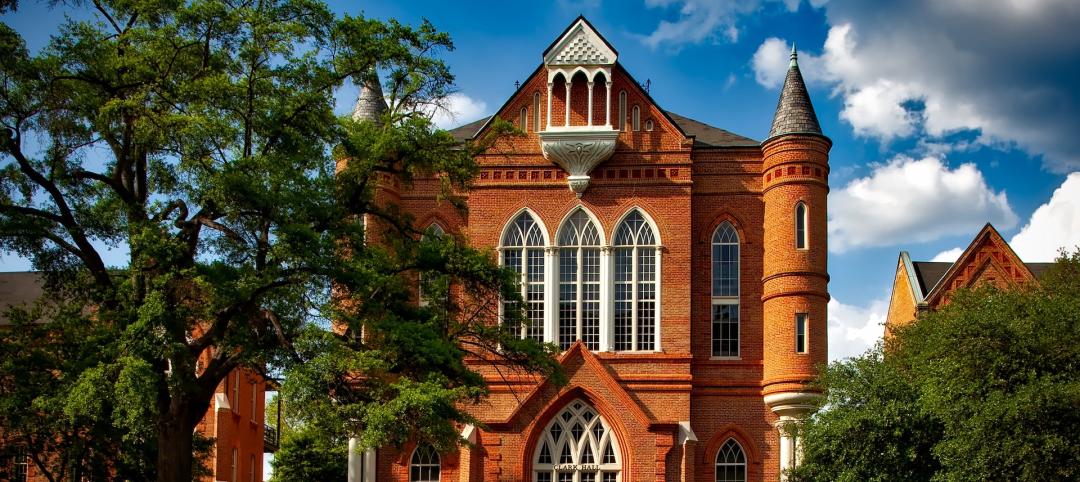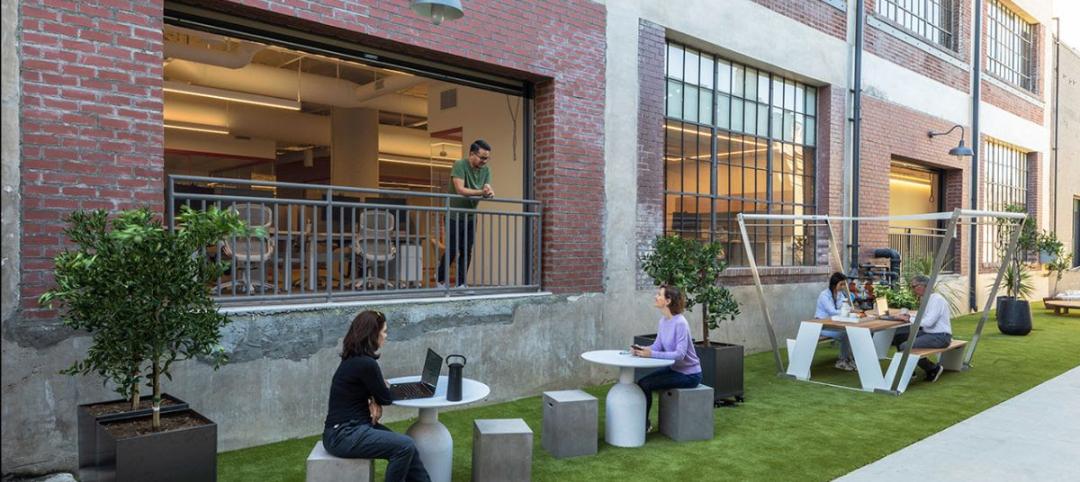Many states have cut back funding for higher education in recent years, and securing money for new housing has been tougher than ever for many colleges and universities. A recent residence hall project in Boston involving three colleges provides an inspiring example of how necessity can spawn invention in financing strategies.
Massachusetts College of Art and Design, a state school, partnered with its neighbors Wentworth Institute of Technology and Massachusetts College of Pharmacy and Health Sciences (now MCPHS University, and known locally as Mass Pharma), both private institutions, to construct its Tree House residence hall. Making the deal pencil out required some deft real estate maneuvers.
First, Wentworth transferred a parking lot to MassArt to allow the site to be expanded. Next, Wentworth and MCPHS University contributed $700,000 toward the cost of building out a student health center that all three schools now share. Then MCPHS agreed to sublease a substantial number of the building’s 17 residence floors to house its students, which helped to defray MassArt’s costs. The last step saw Mass-Art secure state funding to complete the financing for the $54 million project.
“The project wouldn’t have happened without the participation of Wentworth and Mass Pharma,” says Kurt Steinberg, who was appointed Acting President of MassArt in August. The 21-story, 145,600-sf structure is located amid pricey real estate near renowned museums and the Longwood Medical District. Boston’s construction costs are among the nation’s highest.
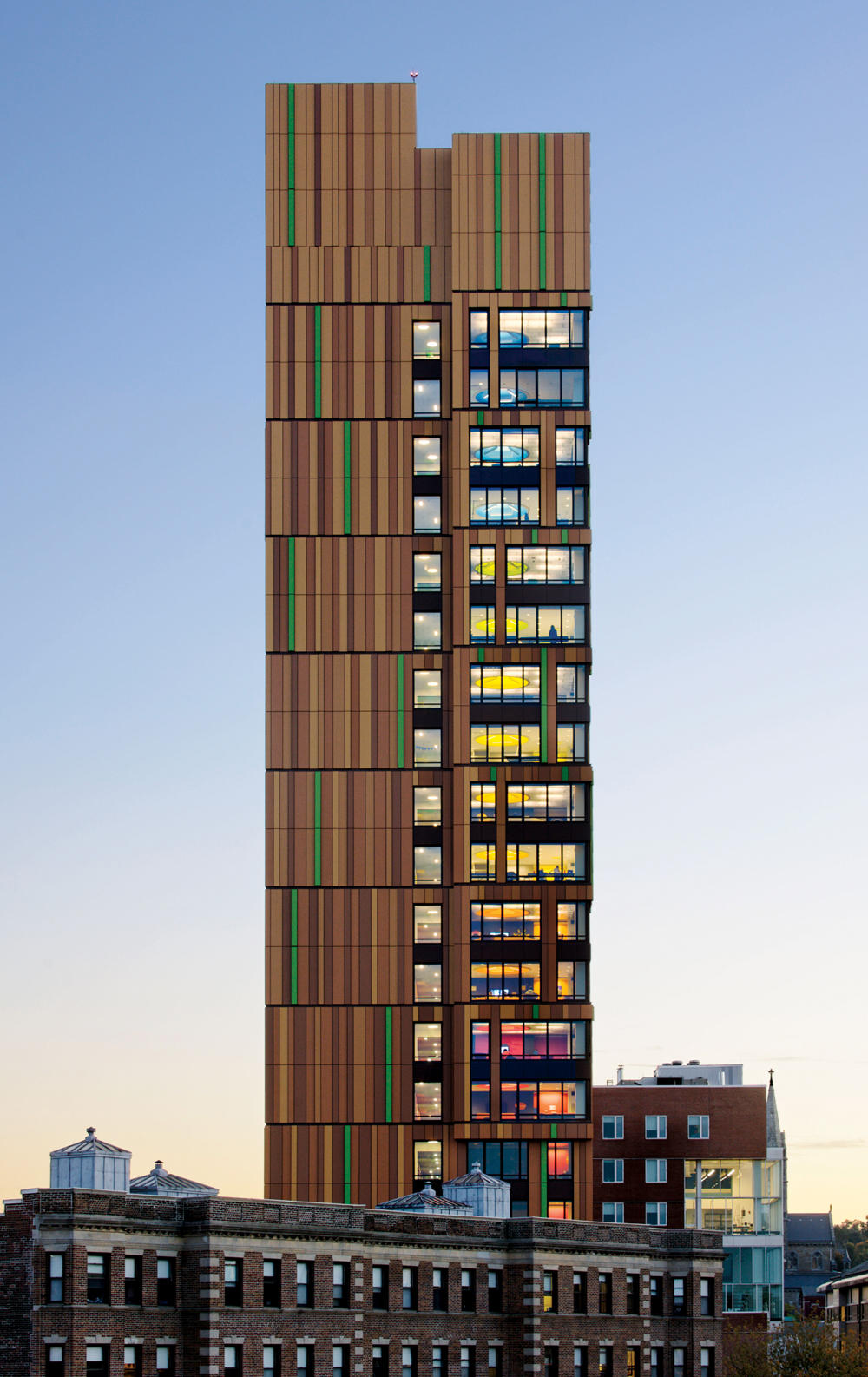
© Chuck Choi
Steinberg says the college didn’t want Tree House to upend the pricing structure of MassArt’s campus housing. “Our goal was to not have the new beds be more expensive than the beds in our other two residence halls,” he says. Mass Pharma leases 260 of the 493 beds; a portion of the rent—$1,000 per bed—goes toward housing scholarships for MassArt students.
The 20-year lease gives MassArt the option to take over the space now occupied by MCPHS University after 10 or 15 years. Should MassArt exercise that option, its on-campus housing would be able to accommodate about 44% of its students, mostly freshmen and sophomores, doubling its total housing capacity.
Designed by ADD, Inc., the Tree House was inspired by Gustav Klimt’s “Tree of Life.” The 280-foot-tall structure stands as proof that three institutions can combine forces to build a facility that fulfills the needs of all parties.
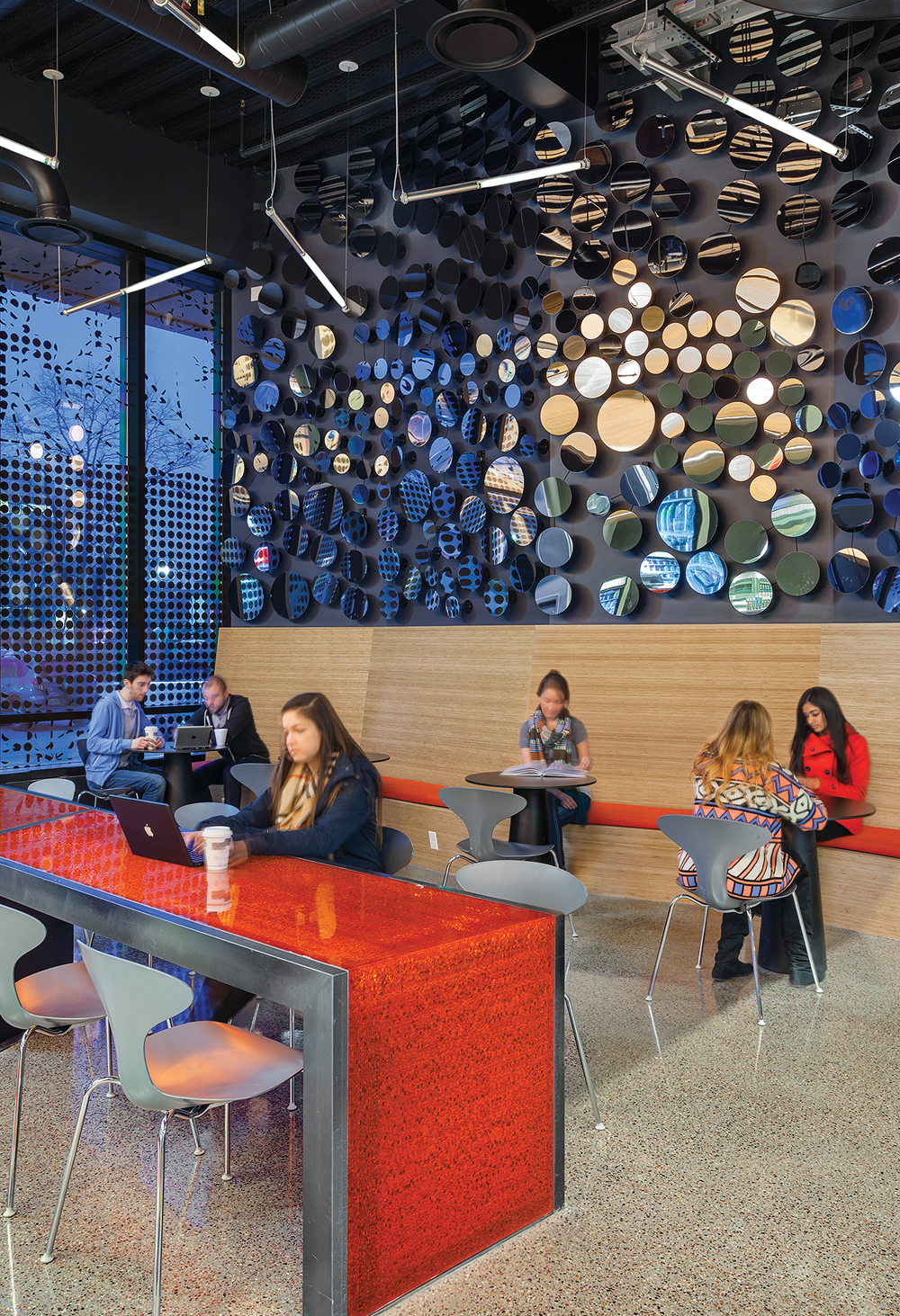
© Lucy Chen
Related Stories
Airports | Apr 18, 2023
India's mammoth new airport terminal takes ‘back to nature’ seriously
On January 15, 2023, Phase 1 of the Kempegowda International Airport’s Terminal 2, in Bengaluru, India, began domestic operations. The 2.75 million-sf building, designed by Skidmore, Owings & Merrill (SOM), is projected to process 25 million passengers annually, while providing its travelers with a healthier environment, thanks to extensive indoor-outdoor landscaping that offers serenity to what is normally a frenzied experience.
Resiliency | Apr 18, 2023
AI-simulated hurricanes could aid in designing more resilient buildings
Researchers at the National Institute of Standards and Technology (NIST) have devised a new method of digitally simulating hurricanes in an effort to create more resilient buildings. A recent study asserts that the simulations can accurately represent the trajectory and wind speeds of a collection of actual storms.
Green | Apr 18, 2023
USGBC and IWBI unveil streamlined certification pathway for LEED and WELL green building programs
The U.S. Green Building Council, Green Business Certification Inc., and the International WELL Building Institute released a streamlined process for projects pursuing certifications for the LEED green building rating system and the WELL Building Standard. The new protocol simplifies documentation for projects that are pursuing both certifications at the same time or that have already earned one certification and are looking to add the other.
K-12 Schools | Apr 18, 2023
ASHRAE offers indoor air quality guide for schools
The American Society of Heating, Refrigerating and Air-Conditioning Engineers (ASHRAE) has released a guide for educators, administrators, and school districts on indoor air quality. The guide can be used as a tool to discuss options to improve indoor air quality based on existing HVAC equipment, regional objectives, and available funding.
Data Centers | Apr 14, 2023
JLL's data center outlook: Cloud computing, AI driving exponential growth for data center industry
According to JLL’s new Global Data Center Outlook, the mass adoption of cloud computing and artificial intelligence (AI) is driving exponential growth for the data center industry, with hyperscale and edge computing leading investor demand.
Healthcare Facilities | Apr 13, 2023
Healthcare construction costs for 2023
Data from Gordian breaks down the average cost per square foot for a three-story hospital across 10 U.S. cities.
Higher Education | Apr 13, 2023
Higher education construction costs for 2023
Fresh data from Gordian breaks down the average cost per square foot for a two-story college classroom building across 10 U.S. cities.
K-12 Schools | Apr 13, 2023
Creating a sense of place with multipurpose K-12 school buildings
Multipurpose buildings serve multiple program and functional requirements. The issue with many of these spaces is that they tend not to do any one thing well.
Healthcare Facilities | Apr 13, 2023
Urgent care facilities: Intentional design for mental and behavioral healthcare
The emergency department (ED) is the de-facto front door for behavior health crises, and yet these departments are understaffed, overwhelmed, and ill-equipped to navigate the layered complexities of highly demanding physical and behavioral health needs.
Office Buildings | Apr 13, 2023
L.A. headquarters for startup Califia Farms incorporates post-pandemic hybrid workplace design concepts
The new Los Angeles headquarters for fast-growing Califia Farms, a brand of dairy alternative products, was designed by SLAM with the post-Covid hybrid work environment in mind. Located in Maxwell Coffee House, a historic production facility built in 1924 that has become a vibrant mixed-use complex, the office features a café bordered by generous meeting rooms.


